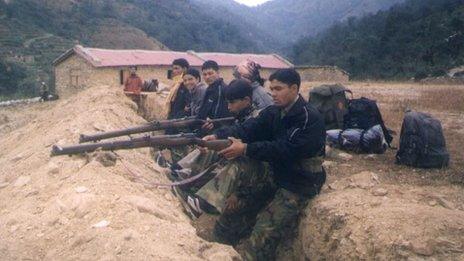Nepal's Maoists digest impending electoral wipe-out
- Published
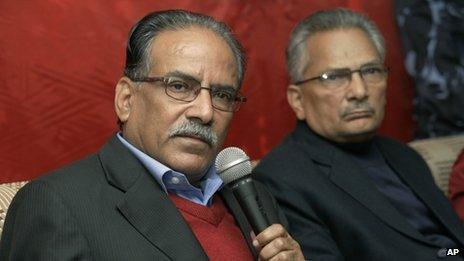
The suddenness of the election defeat has been something of a shock for the Maoist leadership
Nepal's Maoists are threatening to boycott the newly-elected Constituent Assembly. So will their move trigger a further bout of political instability in the Himalayan nation? The BBC Nepali service's Bhagirath Yogi has this assessment from the capital Kathmandu.
On Thursday morning, hundreds of supporters of the centrist Nepali Congress party were celebrating the victory of their candidate, Rajan KC, in front of the Constituent Assembly (CA) building at Baneswore in the Nepalese capital.
Rajan KC had defeated former prime minister and Maoist supremo, Pushpa Kamal Dahal - more popularly known as Prachanda - in Kathmandu constituency number 10.
The result was a shock for the Maoist leader, who won the constituency by a wide margin in the CA polls of 2008.
'International conspiracy'
"I voted against Prachanda this time because he did not fulfil any of his promises," Laxmi Khadka, a resident of Kirtipur - Prachanda's constituency - told the BBC.
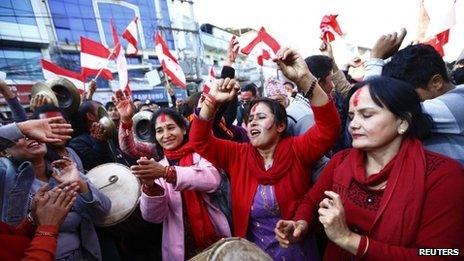
The Nepali Congress Party is resurgent
Laxmi Khadka's decision was matched by millions of other voters across the country who voted for the centrist Nepali Congress and left-of-centre Unified Marxist and Leninist (UML) party instead of the Maoists.
Maoist candidates are in fact trailing in third position in more than 150 constituencies out of the 240 seats up for grab in the direct polls.
A further 335 candidates are chosen on the basis of Nepal's proportional representation system.
Addressing a hurriedly-convened press conference in Kathmandu on Thursday morning, Prachanda announced that his party will stay out of the new CA if the counting process is not immediately halted.
He blamed what he called a "national and international conspiracy" in the election process for his party's poor showing.
But Nepalese election officials have rejected any move to suspend the election.
International election observers - including former US President Jimmy Carter - have lauded Tuesday's vote, dubbing it as largely peaceful, free and fair.
Lavish lifestyles
Sandwiched between two Asian giants - India and China - Nepal is dependent on foreign aid for nearly two-thirds of its development expenditure.
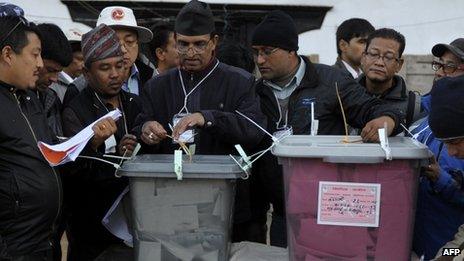
Election officials have dismissed the Maoists' call for the voting process to be suspended
"In today's international context, it may not be possible for the Maoists to boycott the country's political process and walk alone," said Professor Krishna Khanal, a political scientist.
He insisted that the active participation of the Maoists in politics is "a must" if Nepal is successfully to draft a new constitution after years of delay.
The Maoists signed a peace deal in 2006, ending their decade-long armed insurgency in which over 15,000 people were killed.
After elections for the CA in 2008, Prachanda was elected prime minister but resigned after nine months when his attempt to sack the chief of Nepal's army did not succeed.
Nepal has since had five governments over the last five years - one of them led by Prachanda's deputy, Baburam Bhattarai.
Senior Maoist leaders, including Prachanda, have been criticised since the end of the war for their lavish life styles and their failure to strike a chord with ordinary people across the country.
Before coming to power they advocated an overhaul of the state and the abolition of more than two centuries of monarchy - radical policies for a country renowned for its conservatism and tolerance.
Critics say that the words of Maoist leaders have not matched their actions.
That is one reason why analysts predict significant gains for the pro-monarchist Rastriya Prajatantra Party in Tuesday's polls.
Decision time
The main concern now is that a new constitution will be speedily drafted.
The CA was dissolved last year after it failed to draft a new statute, despite extending its tenure several times.
But the major political parties have consistently failed to agree on the contentious issues, including the number of provinces and what form of governance the country should adopt.
While canvassing for the CA elections, major parties said that they would try to finalise the new constitution within a year.
But with the possibility of both the main Maoist party and its breakaway boycotting the assembly, questions are being raised about the possibility of a new constitution being signed off in the immediate future.
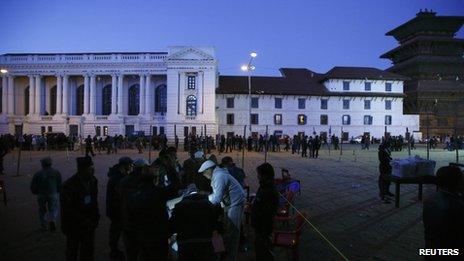
The priority for the Consistency Assembly is to draft a new constitution
"A single election can't decide the fate of any political party. The Maoists need to answer now if they truly believe in competitive politics," Prof Khanal said.
This is one of a number of tough issues that the Maoists will have to face in the future.
Analysts also point out that the leadership has been very sensitive towards the opinion of the international community in relation to Nepal's woes.
State-run Nepal Television reported late on Thursday that Prachanda has met former US President and international election monitor Jimmy Carter to discuss the vote.
"We are committed to the country's peace process and past agreements with other political parties," it reported Prachanda as saying.
His words will come as a relief to those who fear there is a possibility - however slim - of the country sliding back into civil war.
In the past, Nepali political parties have been able to avert similar crises through intense dialogue and negotiations.
With international pressure mounting upon them, the Maoists may also be forced to find a negotiated solution.
- Published21 November 2013
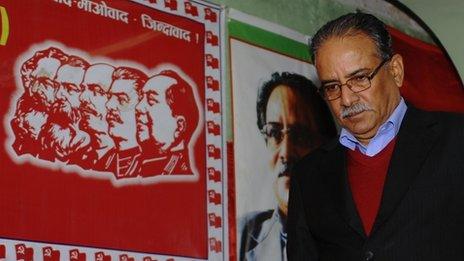
- Published15 July 2024
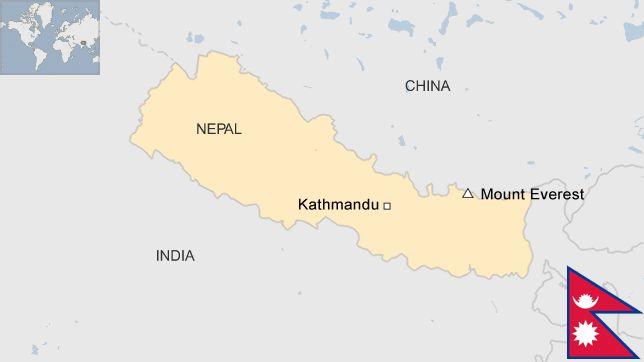
- Published19 November 2013
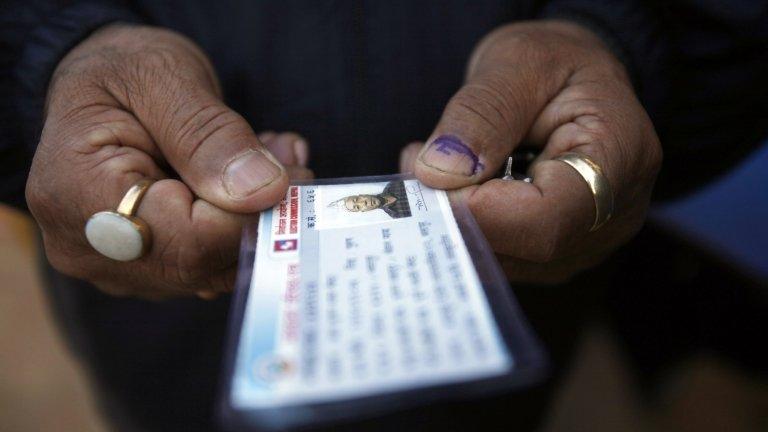
- Published12 September 2013
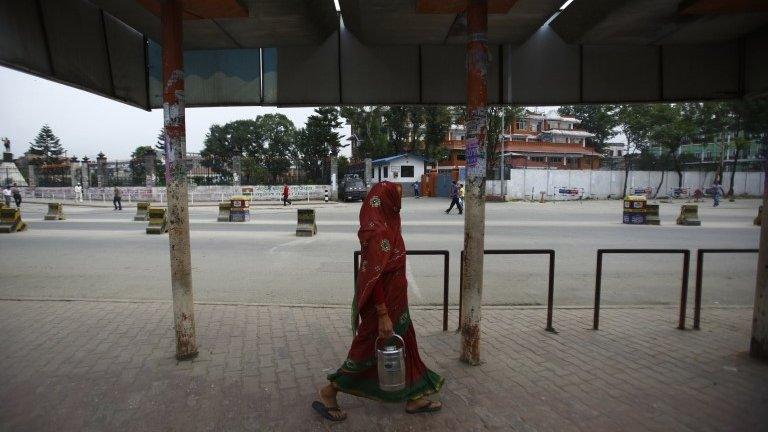
- Published7 December 2012
